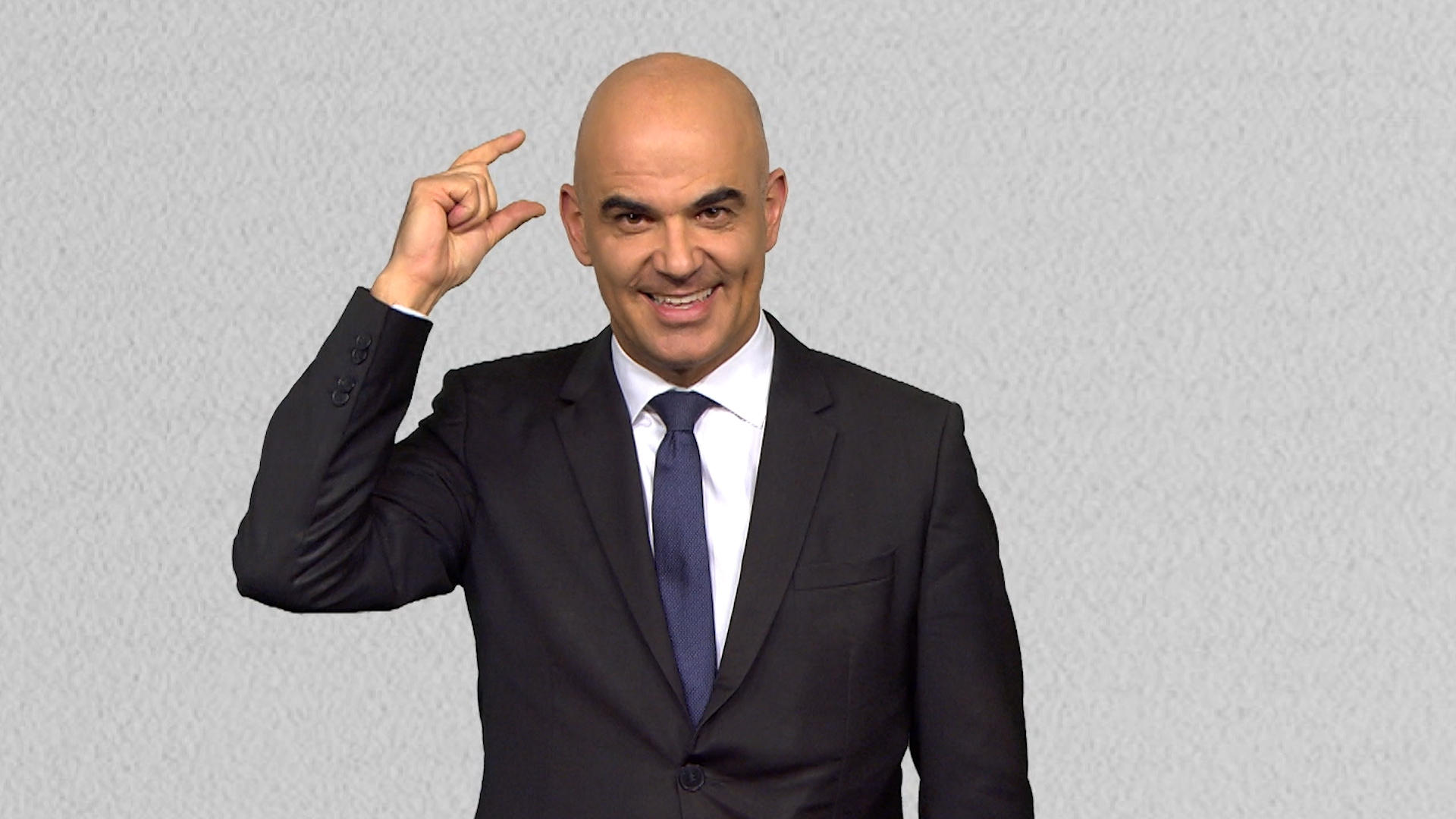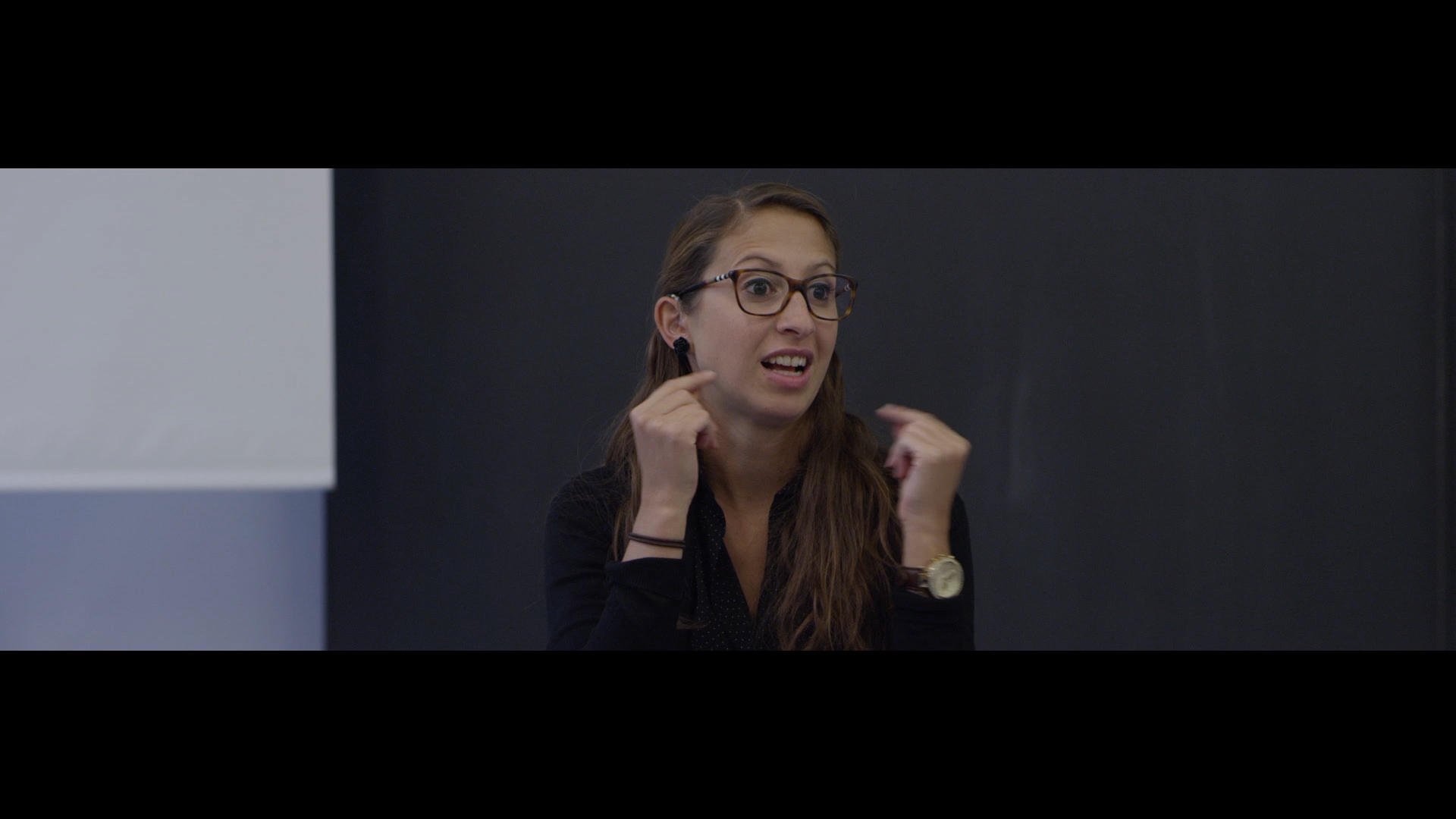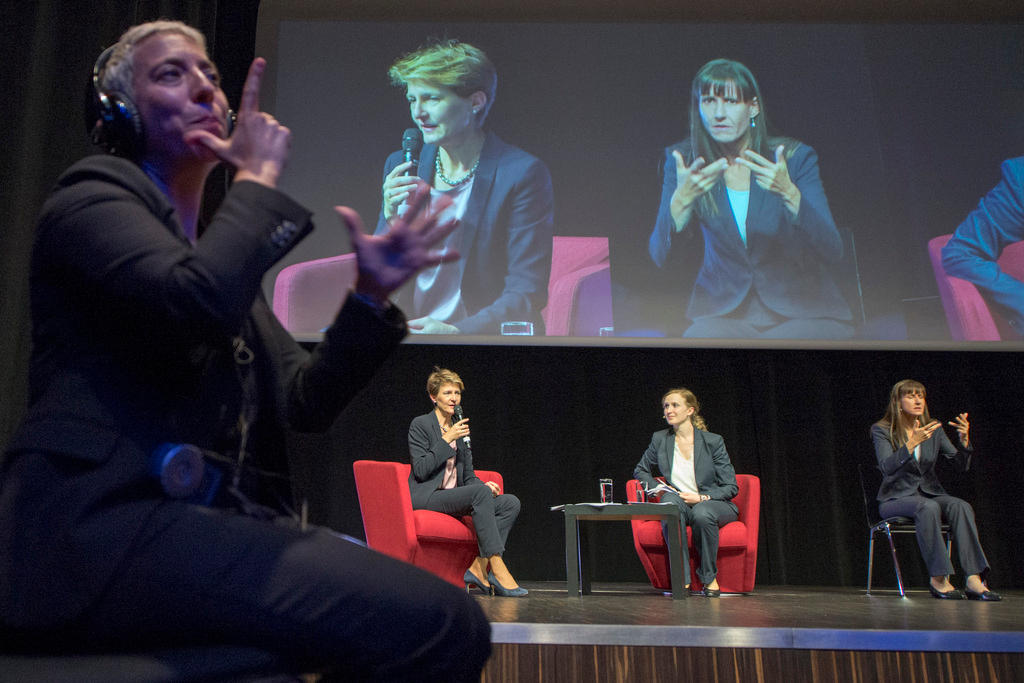Swiss president chosen as ‘Sign of the Year’ by deaf society

Humour is a universal language. This is reflected in the Swiss Sign of the Year, which pokes gentle fun at Alain Berset, who holds the rotating Swiss presidency this year. But what is the status of sign language in Switzerland?
In order to describe the Swiss president accurately, you only need two things: a thumb and an index finger. The gesture symbolises his lack of hair.

Since 2016, the Swiss Deaf AssociationExternal link has awarded a Sign of the Year in the German-speaking part of the country. Donald Trump was the inaugural winner, with Roger Federer receiving the honour last year.
The sign for Alain Berset has established itself among Swiss signers since his speech on Swiss National Day, August 1, on the Rütli meadow. For the first time, the speeches and national anthem were interpreted in sign language.
This is a good example of the increased awareness for such needs. But where does sign language currently stand in Switzerland?
Sign languages are independent visual speech systems with their own grammars. In Switzerland they exist in the country’s three official languages: German, French and Italian. There are dialects too. But signs are not just gesticulated versions of spoken languages. Like all languages, they have developed over time.
Exact statistics don’t exist, but in Switzerland there are an estimated 10,000 deaf people and 600,000 who are hard of hearing, many of whom use sign language.
Demonstrations
In 2014 Switzerland ratified the United Nations’ Convention on the Rights of Persons with DisabilitiesExternal link, which is intended to give people with disabilities the same rights as those without and enable them to participate in society. Contrary to the belief that people with disabilities are somehow “deficient”, the convention says they simply have different needs.
Sign language is currently not a national language in Switzerland. It is mentioned only in the cantonal constitutions of Geneva and Zurich. Switzerland is thus failing to fulfil one of the UN convention’s central points, argues the Swiss Deaf Association, which describes both spoken as well as non-spoken languages as stand-alone, independent languages.
In Sweden, by contrast, sign language is recognised as a minority language and in New Zealand it is even an official language.
In autumn 2017, deaf people and the hard of hearing demonstrated in Switzerland, demanding political information be made available in sign language online. Some cities, such as Bern, prove that that is possible: people communicate via sign-language videos online.
Banned in schools
For a long time sign language was decried in Swiss schools as an inferior “monkey language” and was even banned in Geneva and Zurich until the 1980s and in St Gallen until the 1990s. Teachers feared it would be a bad influence on the spoken language.
Deaf or hearing-impaired children were punished if they signed during class – sometimes their fingers were beaten. Even in special schools, deaf or hearing-impaired children were forced to learn the spoken and written language.
Today, these children are often integrated into mainstream schools. This is not without problems: they can struggle to keep up with the lessons. Reaching higher education or university is a considerable challenge. This is why lobbyists for deaf people are calling for more bilingual teaching:

More
Bilingual teacher for deaf people
(Translated from German by Thomas Stephens)

In compliance with the JTI standards
More: SWI swissinfo.ch certified by the Journalism Trust Initiative





You can find an overview of ongoing debates with our journalists here. Please join us!
If you want to start a conversation about a topic raised in this article or want to report factual errors, email us at english@swissinfo.ch.